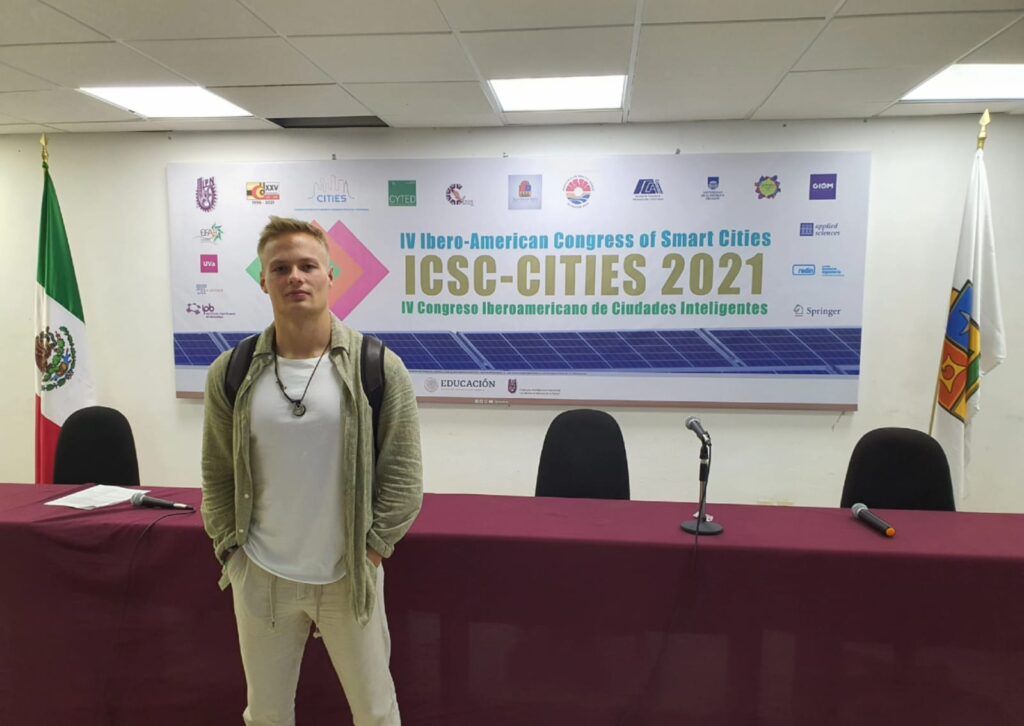La red CITIES, financiada dentro del Programa Iberoamericano de Ciencia y Tecnología para el desarrollo (CYTED), organizó el IV Congreso Iberoamericano de Ciudades Inteligentes (ICSC-CITIES 2021) que se llevó a cabo del 29 al 1 de diciembre de 2021. El congreso será un foro de discusión para crear sinergias entre diferentes grupos de investigación para favorecer el desarrollo de las ciudades inteligentes, abordando distintas temáticas:
- IoT y dispositivos ubicuos
- Movilidad inteligente
- Energía
- Red inteligente
- Gobernanza y ciudadanía
- Eficiencia energética y sostenibilidad
- Industria inteligente
- Medio ambiente y entorno inteligente
- Economía, desarrollo y educación inteligentes
- Servicios públicos inteligentes (gestión de residuos, salud, transporte público, etc.)
- Inteligencia artificial para ciudades inteligentes
- Informática urbana, Big Data, gestión de datos y análisis para ciudades inteligentes
- Otros desarrollos para Smart Cities
La Cátedra participó con la presentación del artículo titulado «Optimization of a Hybrid Echo State Network methodology for forecasting the spot price of Iberian electricity market».

Abstract. In the vast majority of UE countries, the electricity market is structured into day-ahead, an Intraday auction market and an Intraday continuous market. As an integral part of the electrical energy production market, the single day-ahead coupling (SDAC), aims to carry out electrical energy transactions by submitting selling and takeover bids for electrical energy on behalf of the market agents for the twenty-four hours of the next day. The electricity price forecast is a key information to help producers and purchasers involved in the electricity market to prepare their bidding strategies in order to maximize the profits and avoid penalties due to overconsumption or lack of generation. This work proposes a novel methodology to forecast day-ahead electricity based on Self-Organizing Map (SOM) and a set of Echo State Network (ESN) models. The SOM is in charge to cluster the input data automatically according to their similarity to train/infer the ESNs. The ESN models for regression are built on the categories clustered by SOM separately. ESN model parameters (leak rate and spectral radius) are automatically chosen by a genetic algorithm (GA) to improve prediction accuracy by up to 15%. The results suggest that SOM-ESN-GA provides a con-
siderable improvement in the forecast of the daily price in the Iberian electricity market, archiving MAPE results lower than the best forecasting works in the literature.
Keywords: Artificial neural networks, Recurrent neural network, Self-organizing map, Genetic algorithm, Electricity price forecasting, Echo state network.


